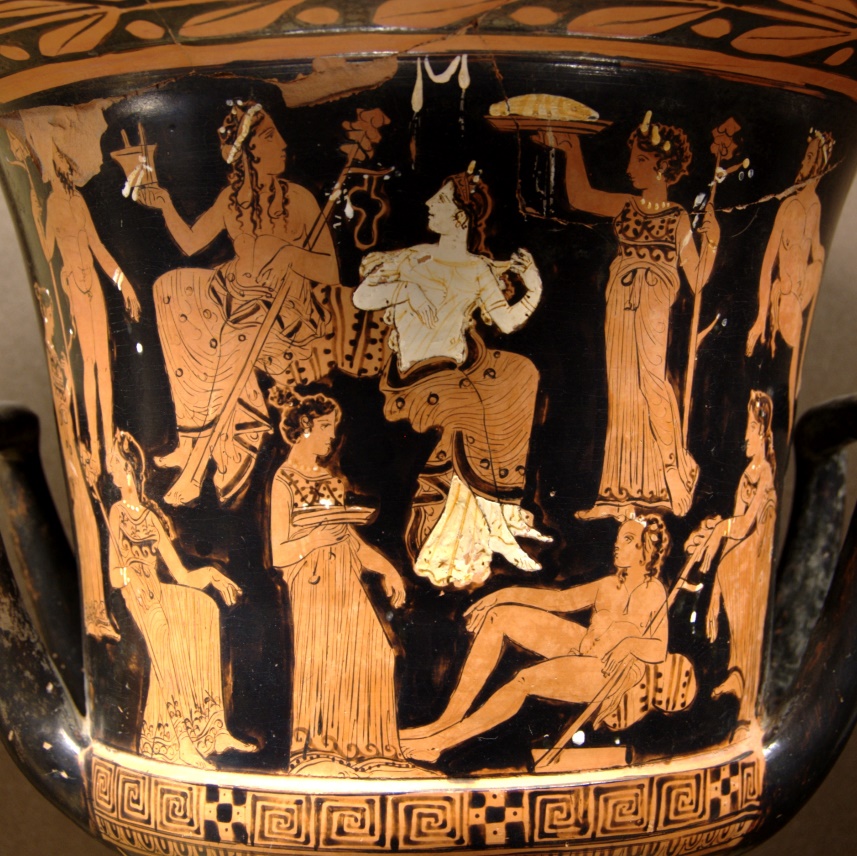Bacchic | Dionysian | Maenad
Three mentions of Bacchic, three of Dionysian, one of Maenad:
It can illumine with a prophet sight,
Invoke the bacchic rapture, the Fury’s goad,
In our body arouse the demon or the god,
Call in the Omniscient and Omnipotent,
Awake a forgotten Almightiness within.
— Book 1 Canto 5
— Book 2 Canto 1
— Book 2 Canto 7
In Book 1, Canto 5, reference is made to the mind as a mediator divinity (Line 381: Mind is a mediator divinity), which can call forth divine ecstasy or, on the contrary, the rectification of a grave error on the spiritual path (See Fury).
Bacchus is the Latin name of Dionysus, the god of wine and drunkenness in the Greek-Roman tradition.
He is, in fact, the force that leads to union with the divine through the path of devotion, the union that can lead to ecstatic trance as mentioned in the following lines:
A Bacchant of creative ecstasy.
— Book 2 Canto 3
And:
— Book 3 Canto 4
The word ‘ecstasy’ means ‘being outside oneself’ and refers to the state where the individual feels ’transported out of oneself’ characterised by rapture, vision, enjoyment or extreme joy. Dionysian devotees become ‘ενθεος’, that is, ‘in the Divine’, ’enthusiasts’ or ‘amazed’.
Therefore, in the earliest times, the Graces or Charites were viewed as the companions of Dionysus. The followers of Dionysus were called ‘Thyades’, meaning ’the Inspired’.
In Book 1, Canto 5, as the quoted verse contains two opposite elements, Sri Aurobindo uses the term ‘Bacchic’ in its archaic sense, of ecstatic trance in the Divine, opposed to the Fury’s goad.
Dionysos, Ariadne, satyrs and maenads. Louvre Museum. Public domain
But these mystical trance states can also lead to overflow if the vital has not been sufficiently purified. This deviance is best illustrated by Euripides, although he was not an initiate.
In Savitri, it is mentioned in the following lines:
Admitting bacchant revellers from the Night
Into its sanctuary of delights,
As in a Dionysian masquerade.
— Book 10 Canto 3
When the excesses to which these ecstasies could lead became apparent, the god’s followers took the name of Maenads derived from the verb ’to be delirious’, Bacchae and many other names. The word ‘Bacchae’ or ‘Bacchantes’ referred to the women totally in the grip of mystical delirium. In this late period, the god was also accompanied by Silenes and Satyrs and sometimes the god Pan.
Sri Aurobindo uses the word ‘Maenad’ to signify that which is driven by desire.
— Book 4 Canto 1
